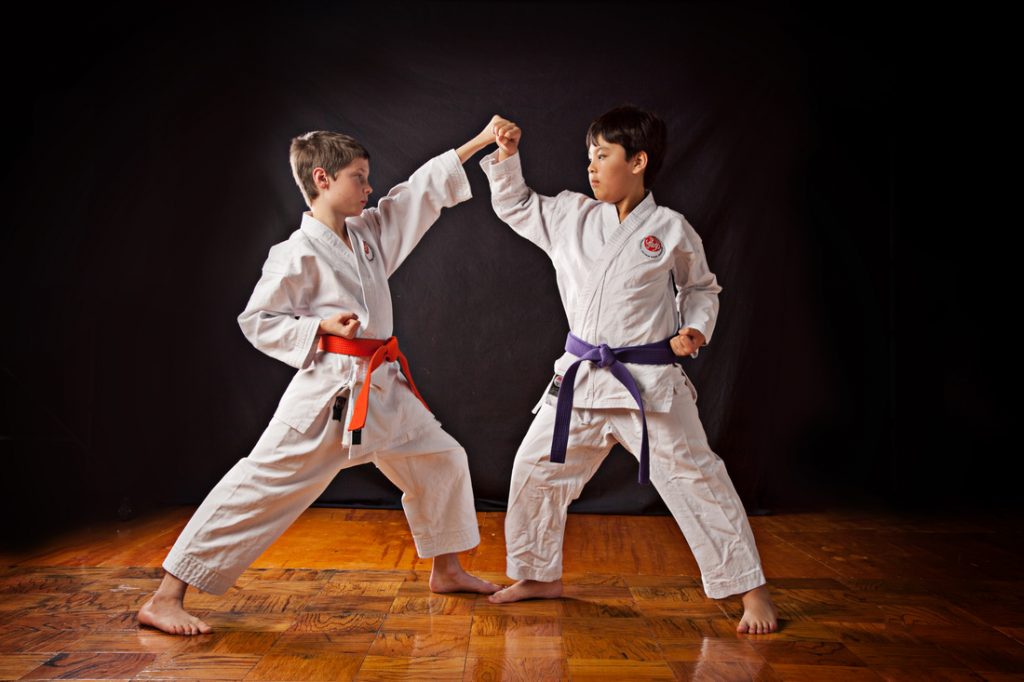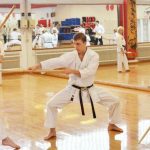Karate is an ancient martial art that has been practiced for centuries. It emphasizes physical and mental strength, as well as self-defense. But what are the underlying principles of this martial art? The Twenty Guiding Principles of Karate provide insight into its philosophy.
In this blog post, we will explore these principles in detail.
From respect and humility to self-control and perseverance, each one will be discussed, highlighting its importance and application in karate practice.
Are you ready to take your karate skills to the next level? Whether you’re a beginner or have been practicing for years, understanding the Twenty Guiding Principles of Karate can help you reach your goals.
So join us on a journey through respect, humility, courage, and perseverance—all essential components of successful karate.
The History of Karate
Karate is an ancient martial art that has been practiced for centuries. It originated in Okinawa, Japan, and combines both Chinese and Japanese fighting styles.
Karate is a system of self-defense that uses punches, kicks, blocks, and throws to protect yourself from an attacker.
The word “karate” comes from the Japanese words “kara” (empty) and “te” (hand), which refers to the fact that it does not rely on weapons but instead uses the hands and feet as its primary means of defense.
In the early 1900s, Gichin Funakoshi brought karate to mainland Japan. He is known as the father of modern karate and developed a style called Shotokan that focused on physical exercise as well as mental development.
Today, karate is practiced around the world, with many different styles and schools teaching it. So if you’re looking for an exciting way to stay fit and defend yourself, karate might be just what you need.
With its combination of physical exercise and mental development, karate can help you become stronger both physically and mentally while learning a valuable self-defense skill.
Overview of the Twenty Guiding Principles of Karate
Karate is an ancient martial art that teaches practitioners important life lessons. John Graden, a martial arts expert and author, has written The Twenty Guiding Principles of Karate, a book that provides an overview of the most important principles in karate.
The book covers topics such as the basics of karate, the five tenets of karate, respect and courtesy, mental discipline, and more.
Real-life examples are included to illustrate how these principles can be applied in everyday life. It explains how each principle can help practitioners reach their goals.
For instance, respect and courtesy are essential for building relationships with others, while mental discipline helps practitioners stay focused on their goals and remain motivated even when faced with challenges.
The Twenty Guiding Principles of Karate have been praised by martial arts experts for their comprehensive coverage and clear explanations.
It is an invaluable resource for any practitioner looking to deepen their understanding of karate principles and apply them to their practice or everyday life.
The Most Important Principles of Karate
Karate is an incredible martial art form that emphasizes self-defense, discipline, and respect.
It’s a great way to stay physically fit, learn self-defense techniques, and develop mental strength.
But the most important principles of karate are humility, respect, hard work, and perseverance.
Humility is essential in karate as it allows practitioners to stay open-minded and learn from their mistakes.
Respect is also important, as it shows respect for the teacher, other practitioners, and the art form itself.
Hard work requires dedication and commitment to master the techniques. And perseverance helps you keep pushing through difficult times and stay focused on your goals.
Karate teaches more than just physical skills; it teaches valuable life lessons that can be used in everyday life.
With practice, anyone can become a skilled karate practitioner! So if you’re looking for a fun way to get fit, learn self-defense skills, and gain mental strength, try karate today.
General Principle of Karate
Karate is an ancient martial art that teaches you how to use your body as a weapon to defend yourself. It emphasizes the importance of discipline, respect, and humility when practicing. Not only does it promote physical fitness and health, but it also helps build mental strength.
Karate can help you gain confidence and learn self-defense skills. With regular practice, you will develop better coordination, balance, and flexibility. You’ll also learn how to remain calm under pressure and think strategically in difficult situations.
Karate is a great way to stay active while having fun. Whether you’re looking for an exciting new hobby or want to learn self-defense skills, karate is a great choice!
Courtesy in Karate
Karate is more than just physical techniques. It also emphasizes the importance of courtesy. Practicing courtesy in karate helps you become a better practitioner and strengthens relationships with those around you.
Show respect for your teacher by following their instructions, using proper etiquette when addressing them, and expressing appreciation for their guidance.
Respect your training partners by being mindful of their safety during practice and not taking advantage of them during sparring.
Respect yourself by understanding the limits of your own body and mind. If you need to take a break or stop altogether, do so without hesitation.
By understanding the importance of courtesy in karate, you can become a better practitioner and build strong relationships with those around you.
Details Of The Twenty Guiding Principles of Karate Book
Karate is an ancient martial art with a long history. If you’re looking to learn more about it, then The Twenty Guiding Principles of Karate by Shihan Fumio Demura is the perfect resource.
This comprehensive guide to the principles of karate was first published in 1980 and is now in its fourth edition.
The book covers everything from the history of karate to basic stances, forms, and self-defense techniques.
It also includes information about how to train safely and effectively, as well as how to develop mental discipline. There are even photographs demonstrating the proper technique for each form.
Whether you’re just starting out or have been practicing karate for years, this book can help you deepen your understanding of this martial art.
From mastering the basic forms to understanding the history of karate, The Twenty Guiding Principles of Karate will provide you with all the knowledge you need!
About the Author Of The Twenty Guiding Principles of Karate Book
Gichin Funakoshi was a true karate master! Born in Okinawa, Japan, in 1868, he is credited with introducing karate to mainland Japan in 1922.
He is considered the father of modern karate and wrote several books on the subject, including The Twenty Guiding Principles of Karate.
This book outlines his philosophy for karate practice and how it can be applied to everyday life.
Funakoshi was also a teacher and mentor to many influential martial artists, one of whom went on to become the chief instructor of the Japan Karate Association.
His legacy lives on through his teachings and writings, which are still studied by martial artists around the world today, providing valuable insight into karate practice and its application in everyday life.
Funakoshi passed away in 1957 at the age of 89, but his legacy will live on forever as a source of guidance for martial arts practitioners everywhere.
So if you’re looking for wisdom on your martial arts journey, look no further than Gichin Funakoshi.
Reviews Of The Twenty Guiding Principles of Karate Book
Karate is an ancient martial art that has been practiced for centuries. It’s a powerful form of self-defense and physical fitness, as well as a way to cultivate mental focus and discipline.
The Twenty Guiding Principles of Karate book is the perfect resource for anyone looking to learn more about karate.
Reviews of the book have been overwhelmingly positive.
People praise its comprehensive coverage of the principles of karate as well as its easy-to-understand writing style.
It’s also praised for its clear explanations and illustrations, which make it easy to follow along even for those with limited martial arts experience.
The book also offers valuable insights into how the principles of karate can be applied to everyday life.
This makes it an excellent resource for both beginners and experienced practitioners alike.
Whether you’re looking to learn more about karate or just want to gain some insight into its philosophy, this book is definitely worth checking out!
Conclusion
The Twenty Guiding Principles of Karate, written by Gichin Funakoshi, the father of modern karate, is an essential resource for martial artists.
It offers clear explanations and illustrations to help deepen understanding of karate principles and how they can be applied to everyday life.
Topics include respect, humility, mental discipline, and more. This book is perfect for beginners and experienced practitioners alike.
Unlock the power of The Twenty Guiding Principles of Karate today.






